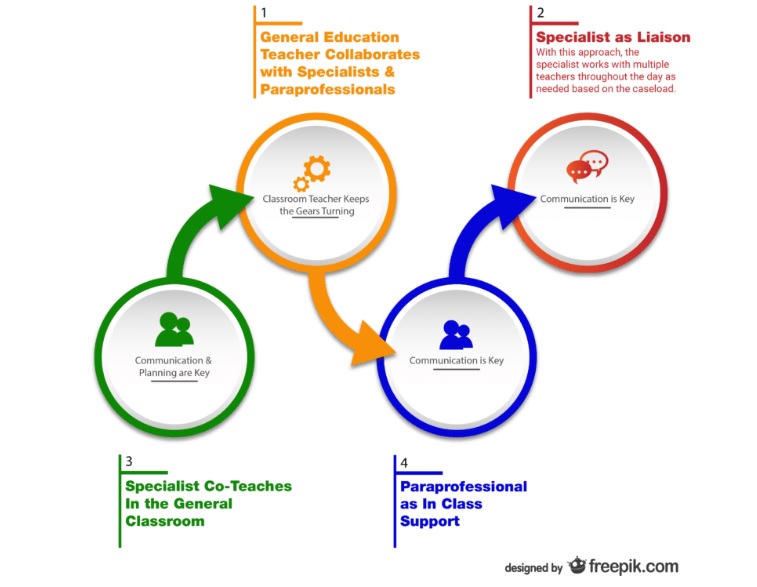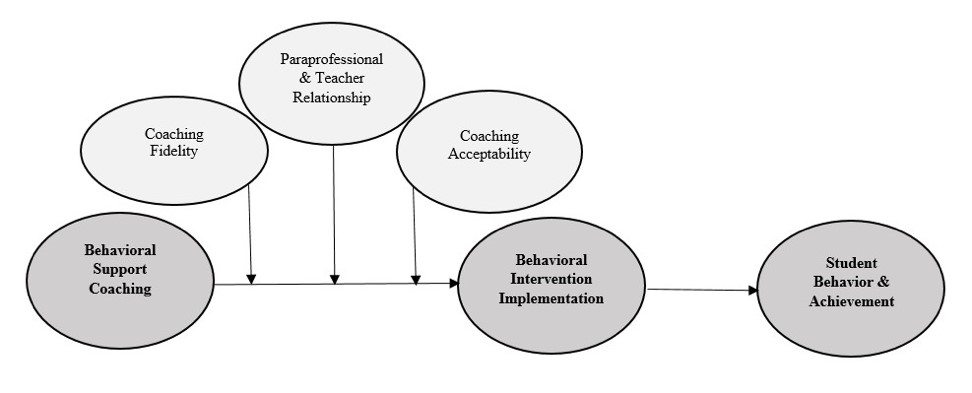5 Proven Ways to Improve Your Relationships with Paraprofessionals
16th February 2023

The growing demand for special education personnel is leading to teacher shortages in schools. This means that special needs educators and paraprofessionals need to shoulder much of the responsibility. As a result of which it is now more crucial than ever to have a strong teacher-paraeducator relationship.
However, just like any other relationship, the bonds between these two verticals are complex. Hence, if you are wondering how to build strong teams with paraprofessionals, here are a few hacks that might come in handy.
Tips On How Teachers And Paraprofessionals Can Work Together Effectively

Here are five tips to break free of the struggle and build a collaborative team:
1. Define Roles Clearly
It is vital for all members of the classroom to fully comprehend their roles and responsibilities and act accordingly. Teachers must always communicate their expectations clearly while working alongside paraprofessionals. As teachers, you need to delegate specific tasks to the paraprofessionals who are under your supervision. These roles can either be instructional or behavioral support, healthcare, or classroom support.
As a teacher you should:
- Identify and curate solutions for particular student learning needs
- Plan and execute lessons while selecting appropriate resources
- Monitor student progress and report it to the parents
- Evaluate student programs and supervise support staff
2. Develop Effective Communication
Communication is the key to developing healthy and fruitful relationships. To improve your lines of communication you can set up some intentional ways that will be helpful for both you and your paraprofessional partner. These might include:
- Daily meetings to share or revise the plan for the day
- Weekly meet-ups to detect behavioral trends and develop strategies to address such concerns
- Joint planning meetings to check everyone is in complete physical and emotional control before the classes
- Express confidence and trust while giving support and encouragement to your paraprofessionals
3. Offer Decision-Making Guidelines
Empower your para teachers to be independent by offering them certain guidelines to follow. The more you make your rules and expectations clearer, the more seamlessly your classes run. Once you develop your guidelines, you can give a free hand to your paraprofessionals to take ownership and enforce students to follow the same.
You can develop guidelines around:
- Classroom management schemes for both regular students and special needs students
- Classroom rules and their corresponding consequences for not following those rules
- Classroom routines like how to go to the washroom, how to signal after work completion, how to submit assignments, and how to behave during transition times like in between classes, recess, etc.
4. Be A Mentor

As teachers, your paraprofessionals look up to you for guidance and support. Thus, be the mentor you always wanted. Since you are experienced and have worked as an advisor or counselor, mentor your partners and aid them in their growth and development. You can do the following things to be a great mentor:
- Commit to encouraging and supporting your paraprofessional
- Encourage them to develop new skills
- Support them and encourage them to take paraprofessional classes if required
- Offer your knowledge, wisdom, experience, and feedback consistently
- Offer resources and study materials to improve performance and practice
- Focus on their career aspirations and help them attain new career opportunities
5. Model Respect And Trust
As teachers, you need to demonstrate to your students that paraprofessionals are team members and that they are extremely important. To do so you need to foster mutual trust and respect. Here is how you can build a classroom atmosphere where paraprofessionals are valued and trusted:
- Boost your paraprofessionals to trust themselves and help them to be confident in their own skin
- Communicate clear expectations, ensure strong accountability, and trust that the job will be done within the deadline
- Build trust by being transparent and honest about your opinions, owning up to your mistakes, and listening actively before interjecting
Broaden Your Perspective To Refine Relationships
In most cases, paraprofessionals are valued by the teachers they work with. Even most administrators appreciate and understand their contribution and hence have increased their requirements in schools. Thus if you want to remain updated about what is going on with every student and want to create impactful classroom sessions, then cherishing your paraprofessionals is your safest bet. If required you can ask them to consider pursuing Online Special Education Courses to stay on the same page and establish communication and trust.

